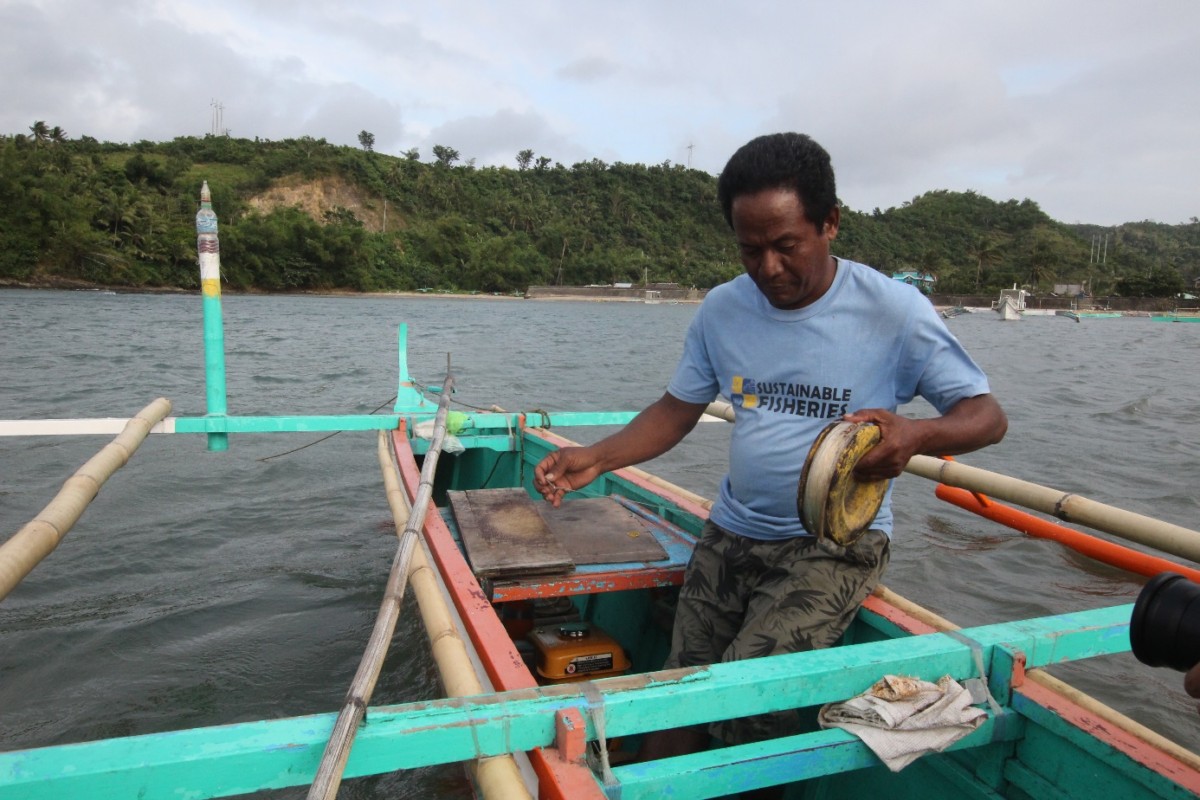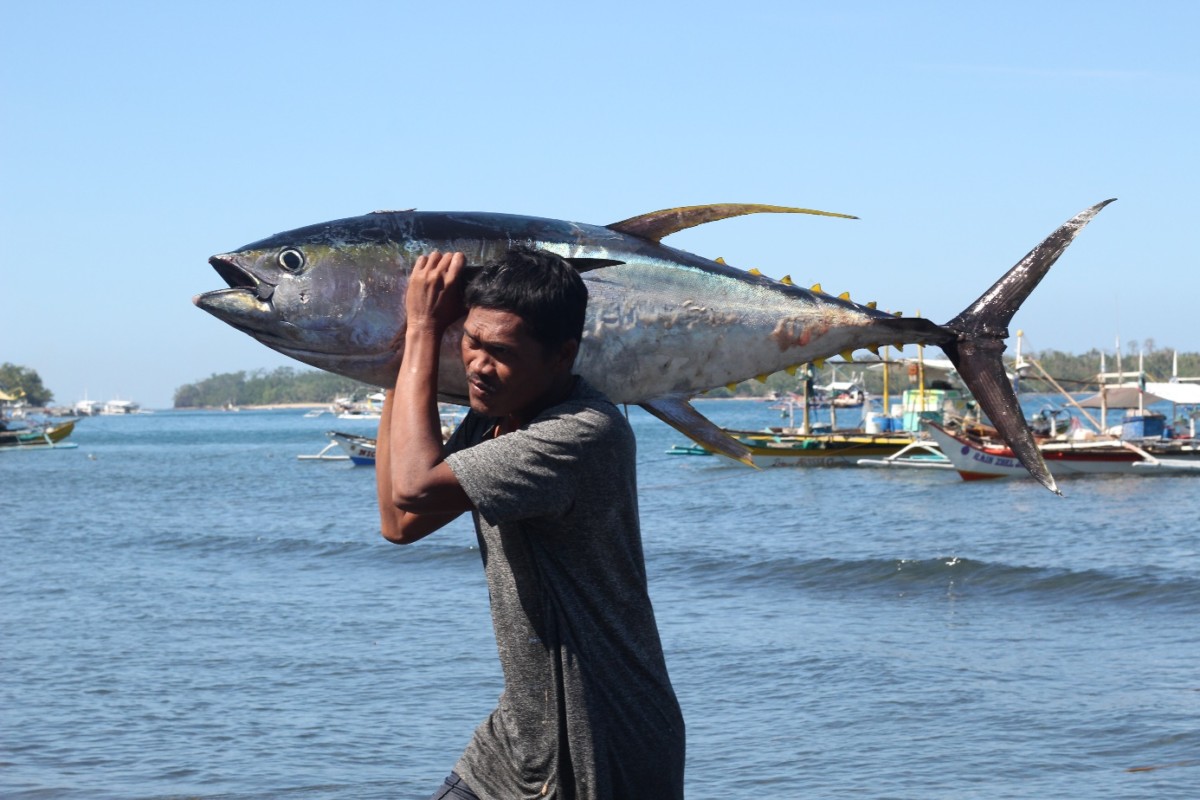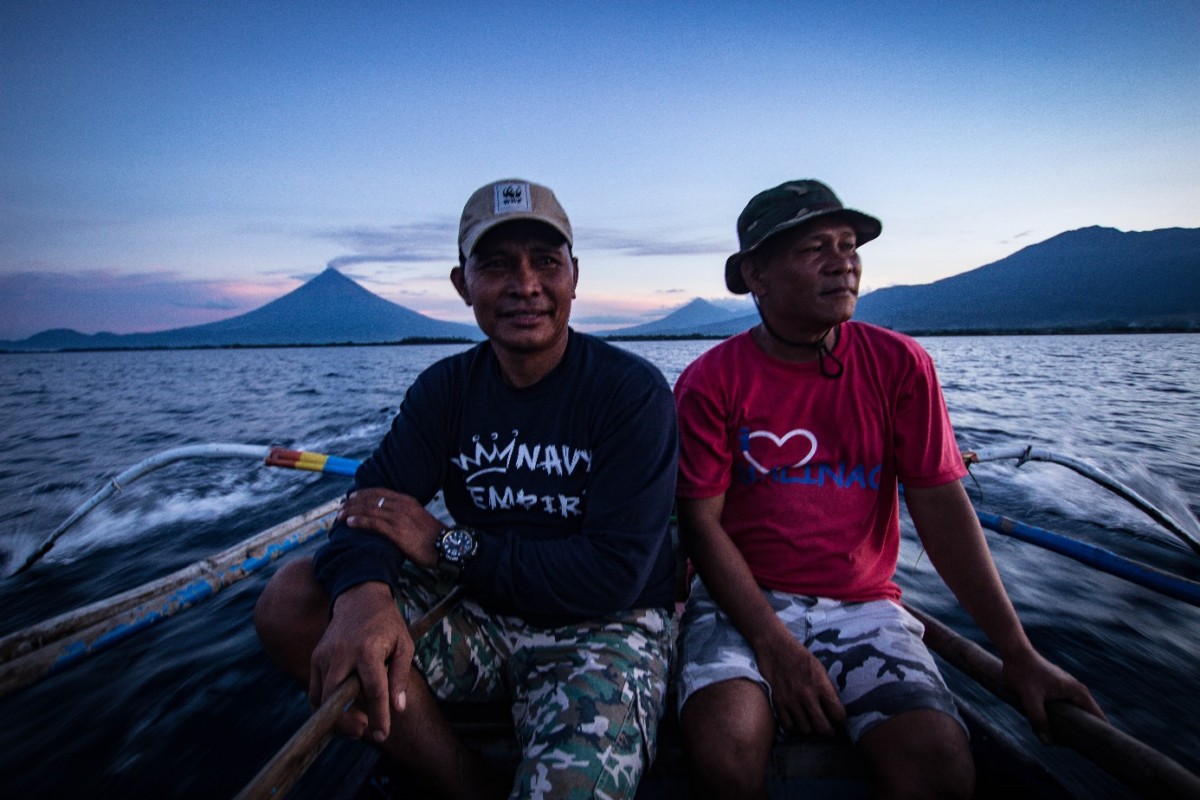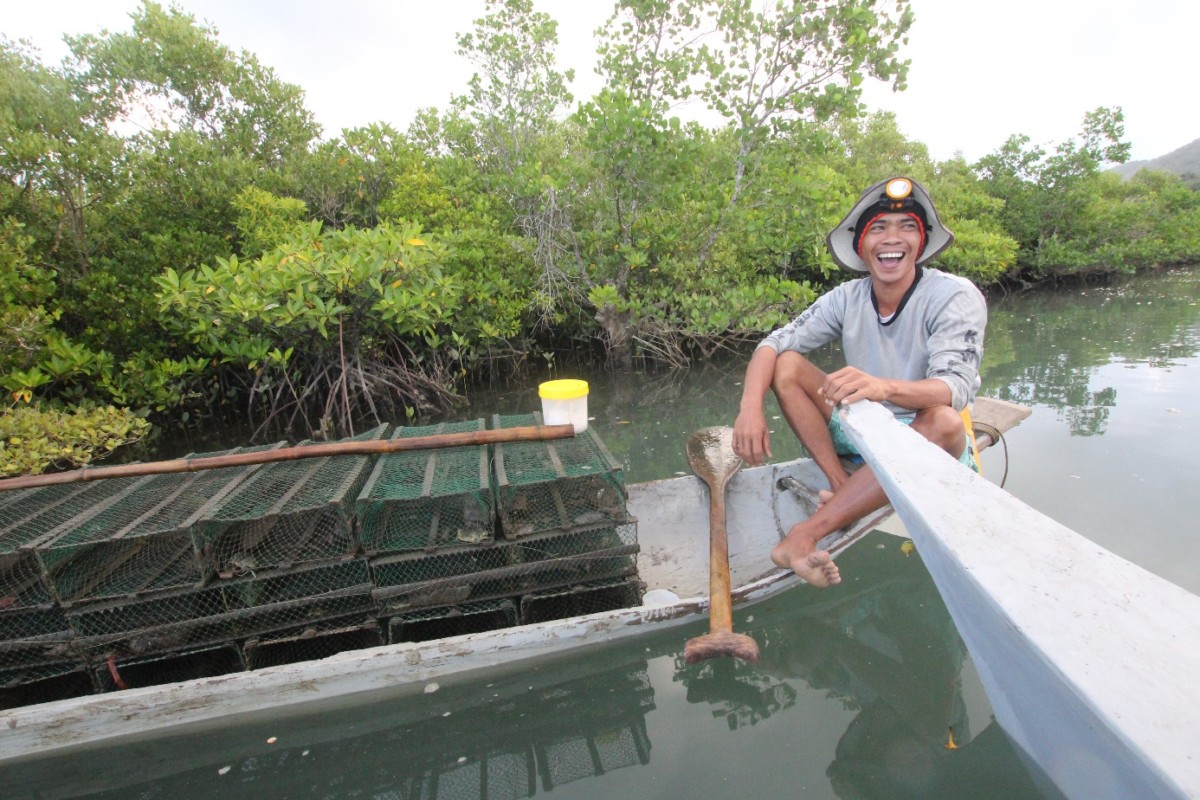Tuna in crisis—what climate change means for Philippine fishermen
September 2020
In the past everything was very simple: The fishermen only had to stand on their jetty or on the beach and pulled the big fish out of the water with their hands. The waters of the Philippines have always been rich in tuna, with yellowfin tuna being one of the most common species. In the 1970s, the arrival of Japanese traders led to a boom. The Philippines soon became a leading player in the international tuna industry.
But times have changed. Lagonoy Gulf, Bicol: A body of water that flows into the Pacific Ocean off the east coast of the Philippines.
We meet Arnel Bitomi and Kuya Arvin, two fishermen who have known each other for a long time. Both have college degrees from local universities and are partners of the World Wide Fund for Nature (WWF) Philippines. They are committed to sustainable, legal fishing in their communities.

The 47-year-old Arnel is president of the Tuna Fisher Association (TFA). He says it has been a long way to get fishermen to register their boats and obtain fishing licenses. This was an important step to limit the fishing capacity in Lagonoy Gulf so that only as much tuna is caught as can grow back. Many of his colleagues believed that the sea is common property and that its resources are unlimited. There was little understanding, therefore, that they should now pay for the fishing and be subject to restrictions. In front of their village, a marine reserve was set up where they are now no longer allowed to fish, as the corals have been destroyed and the ecosystem is supposed to recover. Therefore the fishermen have to accept a further way, which means more expenses for fuel and longer journeys for them.
Today we are standing with them on a jetty and there is a storm around us. The waves are beating so high that it would be too dangerous to go out to sea with the small fishing boats. Unfortunately it is not supposed to get much better the next days. Therefore the fishermen have no choice but to catch small fish like snappers and skat from the jetty. But in return they only get a fraction of what they get for a tuna fish that is shipped to Europe at the local markets.
A low-pressure front that does not allow fishermen to go to sea for days on end is a financial disaster for many. No fish means no income. Arnel says that he sometimes prefers typhoons to weeks of bad weather fronts. "A typhoon is over in one night and then I can go out to sea again the next day. But these long bad weather fronts are deadly for us. The weather has become so unpredictable."
The typhoons have become more frequent and more violent. Fishermen agree that these are the effects of climate change. "Catching tuna is a risky business. Some even go out into the stormy high seas to look for tuna. We have to keep going further out to find more tuna. There are many widows of deep-sea fishermen who have waited in vain for their husbands to return," Arnel tells us.

We visit some villages that are regularly hit by the storms. In the houses there are packed emergency bags with some personal items such as photos and an emergency generator in case there is another blackout. The houses and boats are regularly destroyed by storms. Insurance or reserves for repairs are often not available. But the people here seem to have got used to the state of emergency. They seem calm and not at all bitter. On the contrary: Many Filipinos are very cordial, we are invited and cooked everywhere.
Since cheap fish from commercial enterprises is now flooding the local ports and access to high-quality markets is difficult, it is now difficult for local fishermen to earn good money from their catches. "A kilogram of tuna costs only 150 pesos. In the past, you could charge much more. Some cultivate rice fields or go on assembly because fishing is often not going well. You have to find other ways to make money in this industry," explains Alvin. "We grew up with fishing and love the sea. It's not easy to just change livelihoods," Arnel says.
With their little lanterns on the lookout and their hand lines, the fishermen sit on their little boats every night. They wait to catch their first tuna - sometimes in vain for nights on end.

Due to the warming of the sea, especially in shallower coastal waters, heat waves occur more frequently, which cause corals to die. The oxygen content in the water also decreases and tuna, which need oxygen-rich waters as fast swimmers, migrate to other areas. The sea also absorbs much of the additional carbon dioxide, which leads to acidification. Shell-forming marine animals and squid, which have a calcareous shield, are particularly negatively affected by this. Their growth slows down and shells become too thin to survive. Tuna is also dependent on this food chain, and reduced productivity also causes its stocks to shrink. In addition to the problem of overfishing, the effects of climate change are making life difficult for fishermen. Already now they have to go out to sea longer and further than before until a fish bites. Moreover, the specimens caught have become smaller and bring in less money.
Sometimes they don't take a single tuna out of the sea for weeks, as they do now.
Then they have to borrow money from the middlemen to support their families and pay for the gas for the boats. It's a vicious circle: depending on the dealers weakens their negotiating position.

WWF has been working for years with the fishermen of the Lagonoy Gulf. We support the fishermen in their efforts to form associations in order to achieve a better negotiating position vis-à-vis the politicians and their buyers. Together with companies in the supply chain and fishermen, we are also working on fair trade certification. Fishermen are also encouraged to build up a supplementary income to make them less dependent on fish and traders. And the aim is to create more transparency and promote sustainable fishing with hand lines. The goal for the WWF and for fishermen like Arnel and Alvin is to create a value for sustainable fish
The goal for WWF and for fishermen like Arnel and Alvin is to create value for sustainable fish and achieve higher prices so that they can live better off it. They are all hoping for MSC certification. The WWF project's successful cooperation with authorities, traders and fishermen has enabled sustainable management plans to be drawn up for the project areas that meet the MSC requirements and are now being implemented by the fishermen.
It is a rarity that not a large company but a group of small artisanal fishermen is MSC certified. We hope that fishermen and their families will be more resilient to the climate crisis in the future through sustainable fishing and that in the long term they will be able to retain their valuable fish as a source of income.
For more information, please contact:
Ms. Raisa Pandan
Fish Forward 2 Project Officer
rpandan@wwf.org.ph
For media arrangements, please contact:
Ms. Pam Luber
Integrated Communications Manager
pluber@wwf.org.ph
Ms. Chezka Guevarra
Public Relations, Media, and Events Assistant Manager
cguevarra@wwf.org.ph
